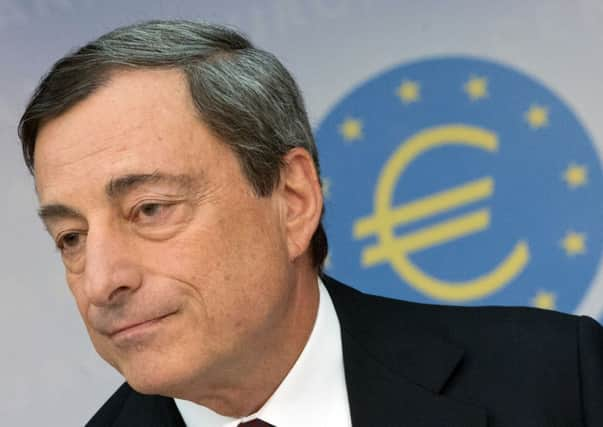Bank of England’s report key for rates move clues


With no accompanying statement from the monetary policy committee (MPC) and minutes of the meeting which may reveal a split in the vote still two weeks away, economists said the report will be key in setting the agenda.
Howard Archer, chief UK economist at IHS Global Insight, said the growth, inflation and unemployment forecasts in the August report will guide policy over the coming months. It is published on Wednesday but the MPC would have had the new forecasts available at their August meeting.
Advertisement
Hide AdAdvertisement
Hide AdArcher said: “If the report is largely upbeat on growth prospects and forecasts that unemployment will continue to come down markedly in the near term at least, it will advance the case for an interest rate hike before the end of 2014 and it could well have caused one or more of the more hawkish MPC members to have voted for a rate hike at the August meeting.”
But he added: “If it focuses more on ongoing low earnings growth and some recent signs that the growth rate could be edging back, it will fuel belief that the Bank of England will hold fire until 2015.”
With the UK and continental economies now on divergent paths, the European Central Bank (ECB) also held its fire. In contrast to the Bank of England, the ECB faces calls to ease policy further.
It announced a big package of stimulus measures in June and is waiting to see how those work before doing more, although its president Mario Draghi hinted he was concerned by further torrid economic data out this week.
Danae Kyriakopoulou, economist at the Centre for Economics and Business Research, noted Draghi said the ECB may have been overestimating already low inflation. “An eagerly awaited revision of ECB forecasts, due in September, is thus expected to pave the way for quantitative easing around the turn of the year,” she said.